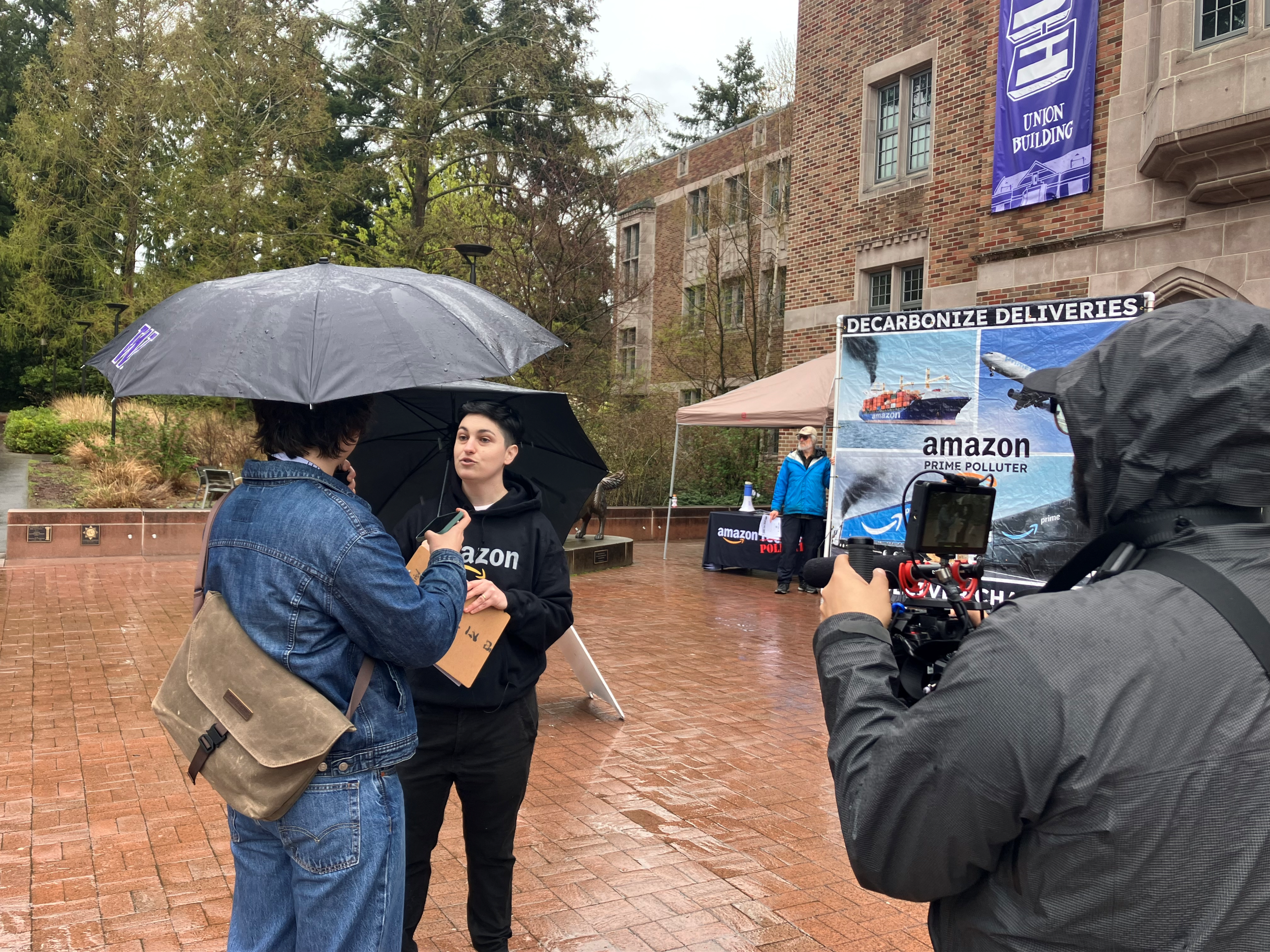


San Pedro Bay Port Complex to Commit to 100% Zero-Emission Ocean Shipping by 2030
LONG BEACH (April 18, 2023) – The Long Beach City Council unanimously passed a Ship It Zero Resolution, 8-0, after the city attorney recommended that the council approve the resolution. The resolution took effect immediately upon its adoption by the Long Beach City Council. Last June, Ship It Zero mistakenly announced that the resolution had been approved by the council; but, in fact, the vote was to ask the city attorney to draft a resolution for review.
This resolution unites the city councils governing the nation’s largest ports, Los Angeles and Long Beach – and the largest seaport complex in the Western Hemisphere – in calling on top maritime importers to adopt existing emissions-reducing technologies and take steps toward making port calls to the San Pedro Port Complex on zero-carbon ships by 2030. A similar resolution by Los Angeles Councilmember Nithya Raman unanimously passed in November of 2021, and a Minneapolis Ship It Zero resolution by City Council President Andrea Jenkins and City Councilmember Robin Wonsley-Worlobah unanimously passed in September of 2022.
“Fossil-fueled shipping contaminates our beloved Long Beach community with asthma and cancer-causing pollutants, contributing to up to 8 years shorter life expectancy on the Westside of Long Beach compared to the Los Angeles County average,” said Dawny’all Heydari, Climate Campaign Manager for Advocacy, Pacific Environment. “We thank Mayor Richardson and our City Council for calling for accountability from maritime importers – and, we urge our leaders to take their advocacy a step further and demand accountability from the Port of Long Beach itself, by banning new fossil fuel production or bunkering infrastructure on port property to prepare and accelerate the race to zero-emissions.”
“America’s goods during the pandemic arrived on dirty cargo ships, mostly through the Ports of Los Angeles and Port of Long Beach, spewing toxic pollution into Black, Brown, poor, and working-class Californians’ communities,” said Eric Leveridge, Corporate Climate Campaigner, Pacific Environment. “Thank you to the Long Beach City Council for prioritizing the health and wellness of residents of Long Beach by calling for accountability from big retailers like Home Depot, Target, Walmart, and Amazon to clean up their dirty shipping practices.”
“We applaud the actions by the Long Beach City Council to move shipping in America’s largest port complex to zero emissions and to hold retailers accountable for their emissions. Ship It Zero calls on big retailers, like Target, IKEA, Home Depot and Amazon and brands across a spectrum of industries, from fashion to tech, to increase their targets to achieve 100% zero-emission shipping by 2030. Retailers, local, city and states must act now and rapidly clean up shipping to ensure a healthier, cleaner tomorrow for our communities and our oceans,” said Kendra Ulrich, Shipping Campaigns Director for Stand.earth.
The international ocean shipping industry’s pollution is on the rise and is expected to comprise 17% of global carbon dioxide emissions by 2050 without urgent action. As home to the largest port in the nation, Los Angeles County receives 40% of all containerized cargo imports to the United States coming through the Ports of Los Angeles and Long Beach, making the surrounding communities – which are primarily working-class Black and Brown communities – particularly vulnerable to deadly pollutants. Long Beach port-adjacent communities experience up to eight years lower life expectancy than the Los Angeles County average and the highest risk of cancer regionally. Black Long Beach residents are hospitalized with asthma at eight times the rate, and Latinx residents twice the rate, of white Long Beach residents.
PORTS OF LOS ANGELES AND LONG BEACH
The Ports of Los Angeles and Long Beach handled the largest share of company cargo imports investigated by the latest Ship It Zero study, with over 40% of imports by twenty-foot equivalent (TEU) and 35.5% of total carbon emissions created through these companies’ maritime imports to the U.S. This shows that the Ports of Los Angeles and Long Beach continue to have an outsized responsibility to act to catalyze the clean energy transition in shipping and end ship pollution at the ports.
SHIPPING INDUSTRY’S POLLUTION PROBLEM
The global shipping industry accounts for 3% of global climate emissions, more than global air travel. If shipping were a country, it would be the world’s sixth largest climate polluter. But since maritime shipping negotiated itself out of the U.N. Paris Agreement, the effort to reduce emissions in the industry has been slower than in other sectors.
Approximately 90% of the world trade is transported by sea, and current business-as-usual scenarios project emissions will grow up to 50% over 2018 levels. While the International Maritime Organization noted increased ship size and operational improvements aimed at creating better fuel efficiency have resulted in a decrease in emissions intensity, annual absolute emissions are still increasing.
###
Ship It Zero is a climate and public health campaign to move the world’s largest companies to 100% zero-emissions ocean shipping. It urges companies such as Walmart, Home Depot, Amazon, Target and IKEA — to transition to 100% zero-emissions cargo shipping vessels by 2030. This goal will ensure the shipping industry does its fair share in helping to keep global warming under 1.5 degrees Celsius, the target scientists say is needed to avoid the worst consequences of the climate crisis.
Media Contacts:
Gwen Dobbs, Senior Communications Manager, Pacific Environment, gdobbs@pacificenvironment.org, 202 329 9295 (Pacific Time)
Shane Reese, Corporate Campaigns Media Director, Stand.earth, shane.reese@stand.earth, +1 919 339 3785 (Eastern Time)

Recent Updates





